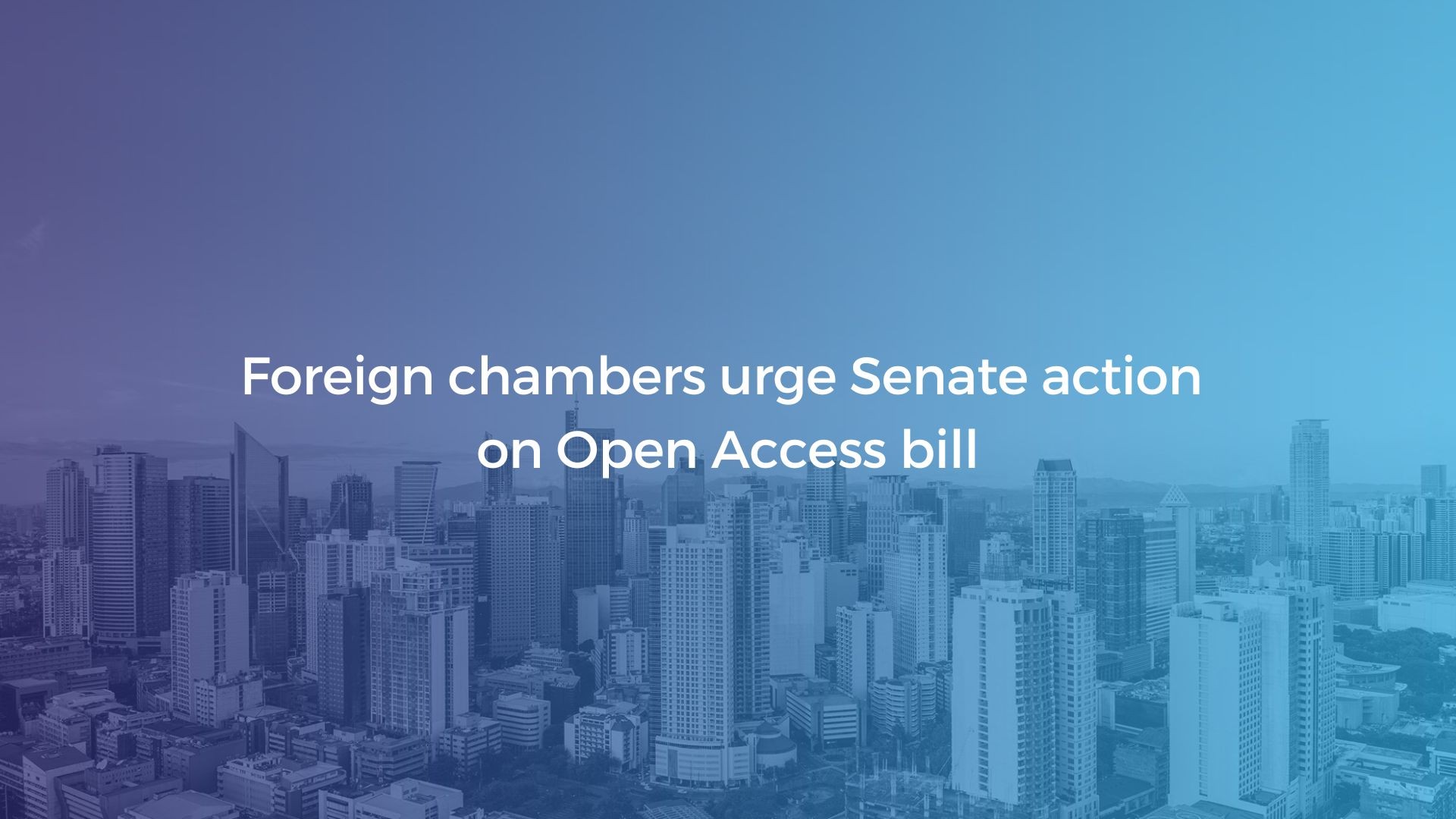
THE JOINT Foreign Chambers (JFC) called for Senate action on the proposed Open Access in Data Transmission Act, which is aimed at improving internet service in the country.
The House of Representatives on Monday approved House Bill No. 6 or the Open Access bill on third and final reading.
“The members of the JFC expressed optimism that since the bill was approved early in the 19th Congress, the Senate will have enough time to deliberate and approve the measure, especially considering no less than the Senate President filed a counterpart to the Open Access bill filed by House Speaker Ferdinand Martin Romualdez, Jr.,” the foreign chambers said in a statement.
The Open Access bill was also approved by the House in the 17th and 18th Congress, but failed to hurdle the Senate both times.
The measure seeks to promote fair and open competition by easing barriers to entry in the telecommunications industry.
“The proposed Open Access in Data Transmission Act is critical to establishing a forward-looking and future-ready digital policy framework for the Philippines,” the JFC said.
The measure aims to “create the space” that will allow different service providers to build and operate data networks, giving broadband users more choices.
The Senate counterpart measures have been referred to the Committee on Science and Technology, which is chaired by Senator Alan Peter S. Cayetano.
The JFC previously said in a position paper sent to the House Committee on Information and Communications Technology that the passage of the bill would help provide fast, reliable, and affordable internet and data service in the country.
“Enactment of the bill will unlock the market and develop a competitive environment to the benefit of the Filipino public. It lowers regulatory barriers and costs of entry for market players offering internet service and promotes fair and open competition at different segments of the data transmission network,” the JFC said.
“This will significantly improve data transmission services (faster internet speed and lower internet costs) throughout the country,” it added.
The Philippines ranked 55th out of 117 countries in the Digital Quality of Life Index 2022 released by virtual private network service provider Surfshark last September. Out of the five categories, the Philippines performed the worst in internet affordability, ranking 98th globally, down 26 places from 72nd a year prior.
“Internet in the Philippines is not affordable compared to global standards,” Surfshark said at that time.
Signatories to the JFC statement include the American Chamber of Commerce of the Philippines, Australian-New Zealand Commerce of the Philippines, Canadian Chamber of Commerce of the Philippines, European Chamber of Commerce of the Philippines, Japanese Chamber of Commerce & Industry of the Philippines, Korean Chamber of Commerce of the Philippines, and Philippine Association of Multinational Companies Regional Headquarters, Inc.